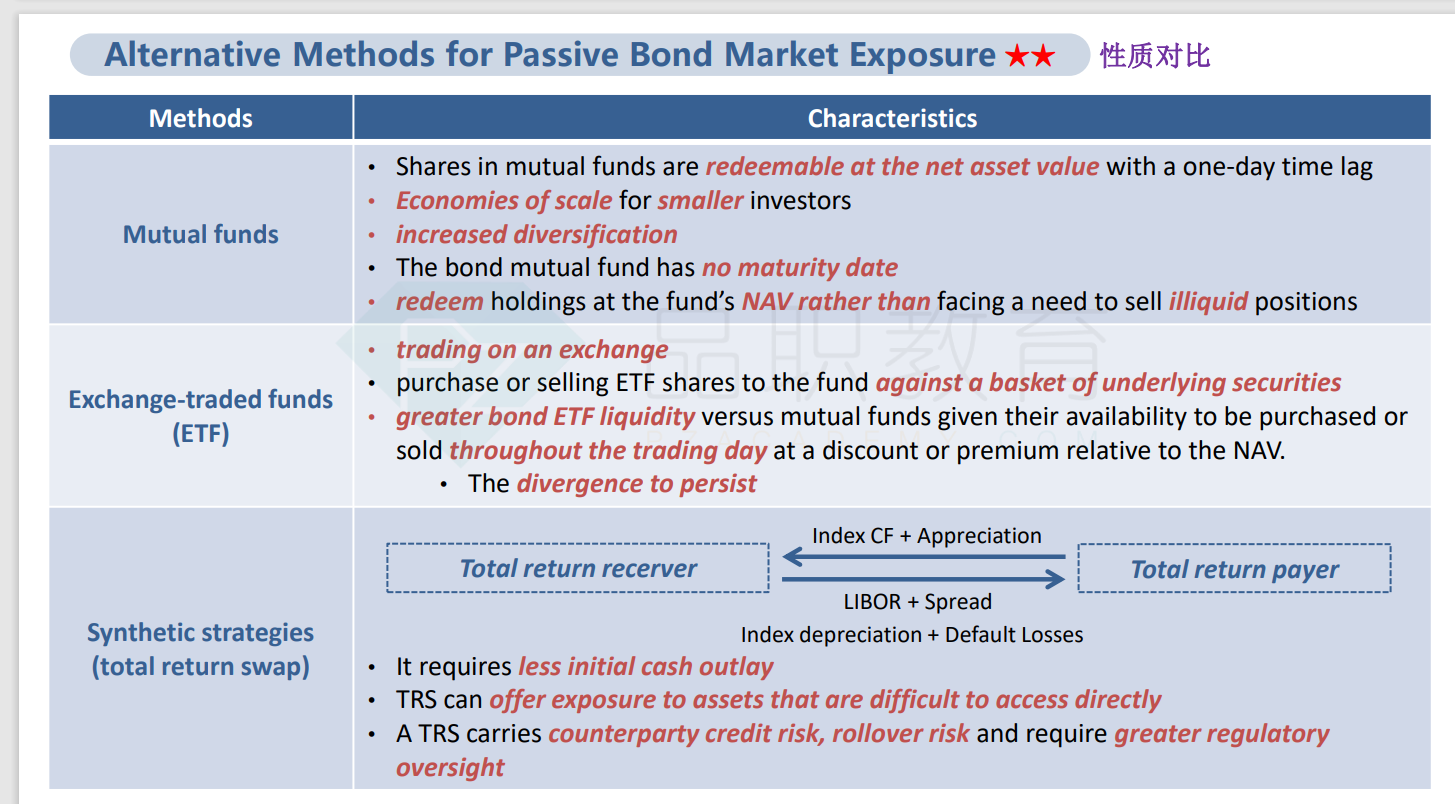NO.PZ2023032703000052
问题如下:
Beatriz Maestre is a fixed-income consultant who has been retained by Filipe Ruelas, the CFO of Cávado Produtos Agricolas, SA (Cávado). Cávado is a manufacturer of prepared foods headquartered in Braga, Portugal. The value of Cávado’s current portfolio is EUR 49.8 million.
Ruelas also tells Maestre that he has considered moving to a passively managed bond portfolio. He is not convinced it is worth his or his staff’s time and effort to try to beat the broad market bond index. He is concerned, however, that it may be no less expensive either in time or transaction costs to replicate an index than to actively manage a portfolio. Maestre recommends a bond-indexing strategy.
What bond indexing strategy would Maestre least likely recommend?
选项:
A.A stratified sampling approach
An index mutual fund
A synthetic strategy using a total return swap
解释:
A is correct. Given that bonds typically trade in large blocks (in excess of USD1 million), attempting to build a bond index fund, even with a stratified sampling approach, would be difficult given the small size of the portfolio. Although mutual funds require payment of expenses, index funds benefit from economies of scale that are passed on to investors. A synthetic approach using a total return swap and holding cash would work. Although it would require finding a counterparty for a relatively small swap, conducting due diligence to control counterparty risk, and dealing with occasional rollover risk, it would still have lower costs than building the portfolio directly.
B is incorrect because an index mutual fund would be very easy to implement compared to stratified sampling and given the relatively small size of the portfolio would likely have lower costs.
C is incorrect because a synthetic approach using a total return swap would be easier and cheaper to implement than stratified sampling because of the small size of the portfolio.
麻烦解释一下这个题目,不知道在问什么意思




